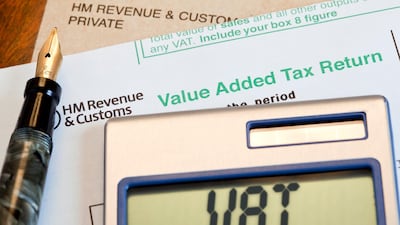I own a recruitment company. I raise invoices when candidates start their new role, but many clients don’t pay me until the end of the new joiners probationary period. This can be up to three months or more after the invoice date. Can I wait until I get paid by my customer before including this revenue on my tax return and paying over the related VAT to the FTA, either by delaying raising my invoices or excluding the unpaid invoices from my VAT return? What is the situation if the customer refuses to pay, which can happen if the candidate leaves the job or fails their probationary period before my invoice is paid? EM Dubai
The Decree law specifies the timeline for issuing Tax invoices and refers to the Date of Supply. The general rule for Date of Supply for services is when the provision of the service is complete, which for your business would be when the candidate starts their new job. You must issue a tax invoice within 14 days of the date of supply. Therefore within 14 days of the candidate starting with their new employer you must have issued the invoice to your client.
Tax periods run for three months and you must submit the return for a quarter within 28 days of the end of that quarter. So once you have issued the invoice you have to include the VAT on the next VAT return regardless of whether you have been paid by your customer. There is no option in the law for you to either delay your invoices past 14 days or exclude your unpaid invoices from your next VAT return.
Article 64 of the Decree Law allows you to adjust output tax payable on bad debts provided specific conditions are met. These are that the service has been provided and the output VAT has already been invoiced and paid to the FTA; six months has passed since you raised the invoice; finally, you should write the debt off in your accounting records and have notified the customer that the debt is written off. This means that you can no longer continue to try to collect the debt. If these four conditions are met you can deduct the output VAT already paid over on your next VAT return.
_______________
Read more:
VAT Q&A: Does our SME have to pay VAT on a business centre contract signed last year?
_______________
What options do I have if my customers are telling me they are no longer legally allowed to do business with me as I am not VAT registered. I am a properly licensed freelance photographer but because I took a period of maternity leave last year my revenues for the last 12 months are below Dh375,000. What can you suggest, this is damaging my business. AG Fujairah
This is a issue that I am asked about regularly. As long as you are properly licensed there is no reason why your customers should refuse to work with you just because you are not VAT registered. There is a commonly held misconception that all businesses must be registered for VAT, regardless of the size of their business, and those that are not are in some way operating illegally. Typically it’s larger organisations that are refusing to work with non-VAT registered businesses through fear that they themselves may somehow be breaking the law. It’s also very difficult to prove to a customer that you are not required to register. My advice would be to consider registering on a voluntary basis. To do this you must have achieved a turnover of Dh187,500 in the past 12 months or anticipate that you will reach that threshold in the next 30 days. The FTA are applying these rules strictly and you have to prove to them that you are above the threshold, so provide as much information as you are able, including invoices raised and details of ongoing contracts, especially if you are applying based on reaching the threshold in the next 30 days. If you fail to provide sufficient evidence then your voluntary registration will be declined.
When determining whether you have reached the voluntary threshold you should remember that it is not just your taxable sales which count towards achieving the threshold. Article 19 of the Decree Law states that you can also include the value of business related taxable goods and services received, as long as they are not part of the taxable sales you’ve already counted. You may also include the value of goods and services purchased from overseas, where no UAE VAT has been charged, which would have been taxable had they been purchased in the UAE. When you are completing your VAT registration I suggest breaking these three elements down and provide the FTA with very clear and detailed evidence that you’re above the threshold.

